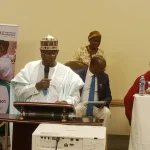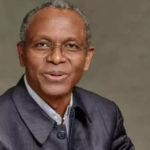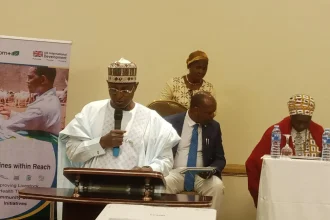The Chairman of the Lagos State chapter of the Nigerian Medical Association, Benjamin Oluwatosin, has expressed deep concern over the deteriorating condition of the country’s health sector.
In a statement marking Nigeria’s 63rd Independence Anniversary, Benjamin highlighted the challenges plaguing the healthcare system.
He stated, “The health sector is nothing to write home about.” Despite the growing population, the health sector has witnessed a decline, and the annual budget allocation for healthcare falls below international standards.
Benjamin pointed out the stark contrast between the increasing population and the shrinking health facilities across the nation.
Many hospitals, once symbols of excellence, have now faded into obscurity. He emphasized that the budget allocated to the health sector consistently falls below the United Nations’ recommended threshold.
“It is common to witness avoidable deaths due to under-equipped and overcrowded hospitals. Instead of addressing this dire situation, our leaders have distanced themselves from the problem they have created,” Benjamin lamented.
He also criticized Nigerian leaders who seek medical treatment abroad while neglecting the healthcare needs of citizens.
“They engage in medical tourism without regard for the people they lead. Our healthcare system’s foundation lies in education and research, both of which are deteriorating rapidly in Nigeria.”
Benjamin drew attention to the disruptions caused by recurring strikes by the Academic Staff Union of Universities, which affect the training of medical students.
He expressed concern that medical graduates struggle to find suitable placements for further training after their compulsory National Youth Service Corps service.
“As a nation, we appear to have lost our moral compass. We undervalue human lives and prioritize the well-being of the elite. This hypocrisy cannot continue,” he asserted.
Highlighting the brain drain in the medical profession, Benjamin noted that Nigerian doctors are increasingly seeking opportunities abroad, where they receive better compensation and support.
This migration, often referred to as “JAPA,” poses a significant threat to Nigeria’s healthcare system.
“Our problem is not a lack of talent or skills but a lack of political will to do what is right. It’s disheartening that in the 21st century, millions still die from preventable diseases like malaria and maternal complications,” he concluded.
As Nigeria celebrates its 63rd Independence Anniversary, Benjamin called for reflection, introspection, and redirection to address the pressing issues in the healthcare sector.











